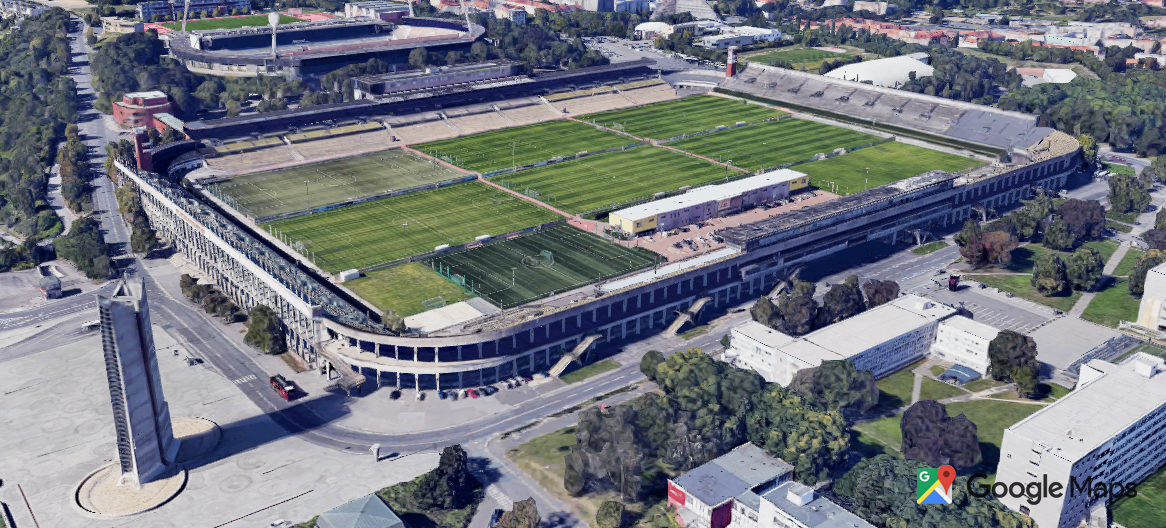Prague: Strahov giant awaiting its future
source: StadiumDB.com; author: michał
 Sometimes considered to have been the largest football stadium of all time, the monstrous Strahov stadium in Prague is falling into disrepair. Renovation works are unavoidable already, however the future use is still uncertain.
Sometimes considered to have been the largest football stadium of all time, the monstrous Strahov stadium in Prague is falling into disrepair. Renovation works are unavoidable already, however the future use is still uncertain.
Advertisement
Although formally it's in constant use as Sparta's training centre, Velký strahovský stadion has been falling into disrepair for many years. The football team is only using the central space (where up to 9 fields could be fitted, currently limited to 7), while the auditorium is dilapidating.
Because the stadium is owned entirely by the city of Prague, authorities are now trying to figure out what would be the best legacy use of the giant. For years it was speculated that Sparta could take over all of the stadium, but that hasn't come to fruition.

Now the ruling coalition is opting for a different use of the non-football part. The north and east stands could be revamped to host the museum of 20th-century totalitarisms. Currently the stadium is considered the most viable location for the cultural project. It wouldn't be a random pick, too. After the Prague uprising, the stadium has served as internment camp for Nazis and it saw its share of cruelty.
Location of the museum in Strahov would be a good idea for further activation of the area, which should see a tram line extended precisely to the stadium within 4 years.
Early estimates suggest the stadium's renovation could cost upwards of CZK 1.2 billion (€44m). It should be considered a preliminary amount, though, as it doesn't include the planned museum and would only see the concrete structure upgraded.
The historical stadium was opened in 1926 and became famous for being able to hold up to 250,000 people, though only under 60,000 on seats. It was used for mass gatherings for over a decade, before WWII reshaped Europe. Under Soviet occupation it still served its purpose, which ended only after the fall of USSR.
Advertisement
 StadiumDB
StadiumDB ©
©